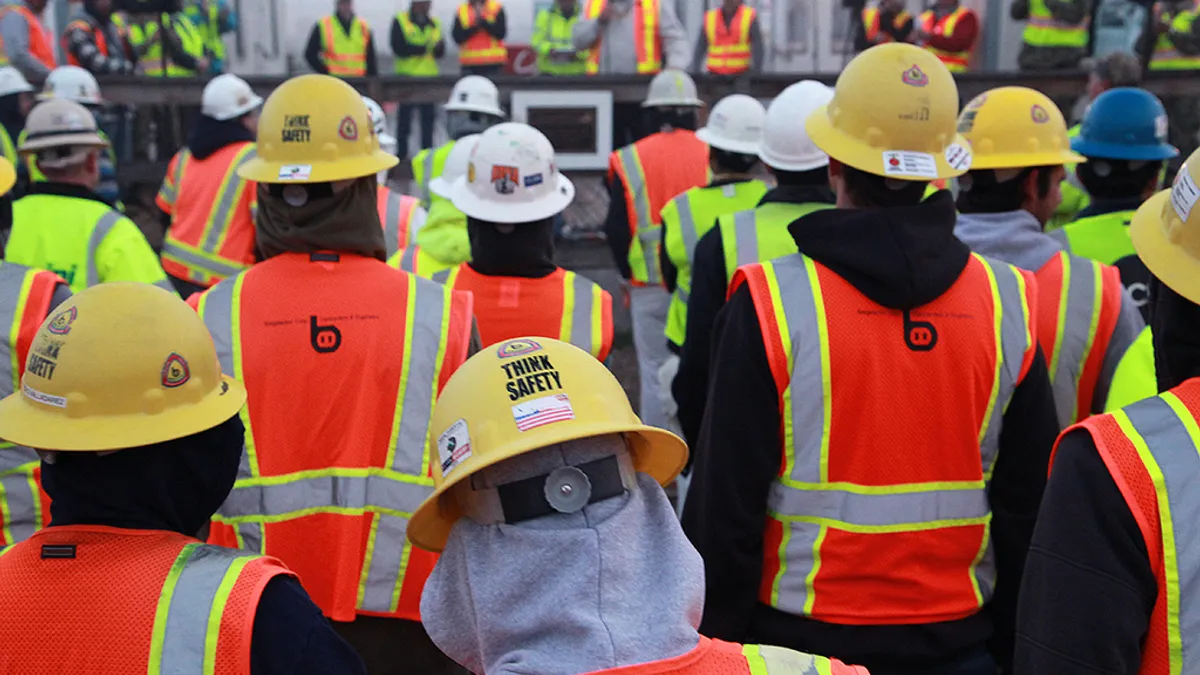Dive Brief:
- Procter & Gamble and Unilever are among the major advertisers involved in the launch of a group focused on making digital media safer for consumers and brands. The Global Alliance for Responsible Media is bringing together advertisers, publishers and online platforms to stop the online growth of offensive content and fake news, per an announcement from WPP's Group M.
- Members of the World Federation of Advertisers are leading the effort, including Adidas, General Mills, Mars, MasterCard, Mondelēz International and Nestlé. Facebook, Google/YouTube, Twitter and Verizon Media are among the digital platforms to support the launch.
- Separately, the Brand Safety Institute (BSI), an organization that seeks to professionalize the field of brand protection, this week started offering an accreditation process for executives who manage brand safety at their companies, per an announcement shared with Mobile Marketer. For $999, the group's website offers an inaugural membership that includes training to receive a Brand Safety Officer (BSO) accreditation.
Dive Insight:
The newly formed Global Alliance for Responsible Media seeks to address significant brand-safety worries before they impede the growth of digital advertising. The involvement of numerous major stakeholders in digital media suggests the industry is taking brand safety seriously. However, the issue has proven to be a thorny one, with a number of platforms having tried to address brand safety without being able to stamp it out. Just this week, the CEO of YouTube — which is frequently at the center of brand safety concerns — said the platform is too big to filter out all of the harmful content on the site. If eradicating harmful content at the source will never be completely effective, then it makes sense that more marketers may look to hire a trained brand safety officer to oversee internal efforts to keep the problem at bay.
Brand safety became a bigger problem than ad fraud in the past year, according to a recent report from DoubleVerify. The media verification company observed a 194% global jump in brand-safety incidents in 2018, outpacing the 120% surge in fraudulent apps for connected TV and mobile devices. Ninety percent of advertisers actively avoid divisive politics and fake news to curtail the possibility of damaging their brands, per DoubleVerify.
The issue has become more pronounced in recent years, particularly on social media platforms that publish user-generated content (UGC) from billions of people worldwide, some posing as legitimate publishers and news organizations. While most of that content is innocuous, some of it has a dark side consisting of hate speech, terrorist propaganda, fake news and the sexual exploitation of children. Marketers unwittingly support the proliferation of that objectionable content when their ads appear alongside it, and they suffer when consumers form negative associations with their brands. Almost two-thirds (65%) of consumers said they’d stop using a brand if they saw its ads next to false, objectionable or inflammatory content, per a separate study by DoubleVerify and Harris Poll.
Advertisers have grown more vocal in their criticisms of digital media amid the increased worries about brand safety, among other concerns like a lack of transparency and lack of consistent measurement standards. Marc Pritchard, chief brand officer of CPG giant Procter & Gamble, in April issued a call to entirely reinvent the digital media supply chain as clean-up efforts of the current ecosystem proved futile in the face of rapid growth. He endorsed five principles to reshape digital media, including a demand that marketers promote civility by working with their media partners to create a constructive, balanced online discourse. Pritchard also is chairman of the ANA, whose Growth Council supports the newly created Global Alliance for Responsible Media.
Unfortunately, bad actors continually try to outsmart software and human screeners who try to eliminate objectionable content before online audiences see it. It's an ongoing battle for social media companies that recognize the need to bolster their brand-safety protections to support audience growth and ad sales.
Reddit is working with Oracle Data Cloud to provide brand safety controls for advertisers around real-time feeds of UGC, the companies announced this week. Facebook last month raised the pay of content moderators who are routinely exposed to violent or sexual imagery as part of their jobs of screening out objectionable content. The social network prioritized a crackdown on fake news, inflammatory speech and propaganda in dozens of countries after facing criticism for alleged abuses of its social network.














